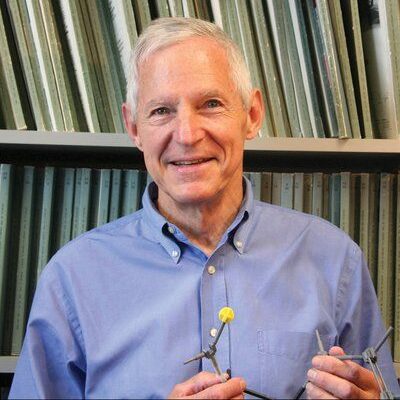John E. Baldwin
1937 – 2024

John Edwin Baldwin was born in Berwyn, Illinois on September 10, 1937 and grew up in Oak Park. He excelled in sports and was valedictorian of his high school graduating class. Baldwin did his undergraduate studies at Dartmouth College, graduating as valedictorian in 1959. He then pursued his doctoral studies in chemistry and physics under Jack Roberts at California Institute of Technology, earning his PhD in 1963.
After five years on the faculty of the University of Illinois he moved in 1968 to the University of Oregon as a professor. During his sixteen-year tenure there, he also served five years as Dean of Arts and Sciences. John moved in 1984 to Syracuse University where he spent his final decades of teaching and research. He co-led the eight-year creation of the 230,000 square foot Life Sciences Complex and chaired the Department of Chemistry with immense distinction. He invested in mentoring other scholars and academic leaders; his colleagues and students are making an impact throughout the world. He was the William Rand Kenan Jr. Professor of Science and was named one of the few Distinguished Professors at Syracuse, also earning a Chancellor’s Citation for Excellence. His research was supported by the NSF and by awards, such as those from the John Simon Guggenheim and the Alexander von Humboldt Foundations. Baldwin served on national boards and scientific advisory committees, including the President’s Science Advisory Committee; the NIH Medicinal Chemistry Study Section; the NSF’s Chemistry Division Standing Review Panel; the executive committee of the ACS Division of Organic Chemistry; and the Advisory Board of the ACS Petroleum Research Fund. He served on the Board of Editors of Organic Reactions from Volume 20 (1973) to Volume 25 (1978).
Deeply interested in physical organic chemistry and dedicated to the universities where he worked, as well as to his broader scholarly community, Baldwin developed a reputation as a gifted and meticulous scholar, researcher, collaborator, and legendary teacher and mentor. John’s research contributions were diverse and highly influential and his complex experiments were considered ambitious, elegant, and insightful: one mark of that work was his receipt of the American Chemical Society’s James Flack Norris Award in Physical Organic Chemistry in 2010. The citation highlights his original mathematical approaches and ingenious isotopic labeling to solve the most challenging problems.
He was one of the first to use density functional theory and other emerging quantum calculations to gain insights into chemical bonding and reaction mechanisms. He published over 150 articles and continued to publish important works up until his retirement focused on mechanistic studies of structural isomerizations and stereomutations, including those in cyclopropanes and vinylcyclopropanes. Small molecules, especially those in the gas phase were always of particular interest, since the energy levels of these molecules could be calculated using the programs and computational capabilities of the time. He summarized this work and its history and development in a 2003 Chemical Reviews article.
John had a passion for learning that extended beyond his primary professional field. He read broadly, especially in history and philosophy, and studied many foreign languages, including Russian, Swedish, and German. He embraced the professional and personal opportunity to travel and held visiting professor appointments at Heidelberg, Munich and Hamburg, Germany; Krakow, Poland; Stockholm and Göteborg, Sweden; and at his alma mater Cal Tech. His friends and colleagues treasured his intense interest in their work, no matter how far afield it was from his. He loved music and enjoyed being on the board of the Chamber Music Society and supporting the work of the Society for New Music in Syracuse. John and Anne held concerts of those societies in their home and frequently hosted visiting musicians. He was an athlete on the football, lacrosse, track, and ski teams at Dartmouth. He remained an avid runner and took pleasure in running with friends.
John died on May 26, 2024, and is survived by his wife, Anne, three children, and grandchildren.

